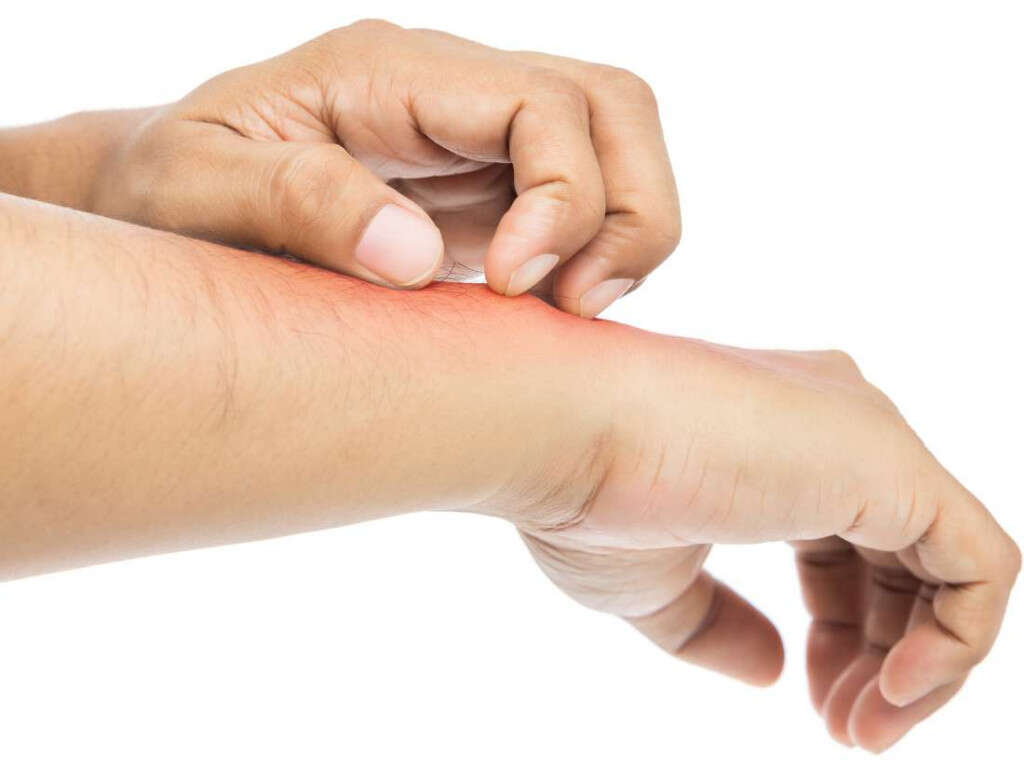10 Signs of Anaphylactic Shock
Millions of people around the world have allergies to various substances. Allergies are reactions to otherwise harmless substances because the body mistakes them for something that can do you harm. The reactions will often involve itching, rashes, sneezing, and watery eyes; although they can sometimes be far more severe.
An anaphylactic shock is a condition where the body reacts in an extreme manner to the presence of an allergy. It can cause the body to release a flood of chemicals to try and deal with the threat. Instead of helping, though, it will be putting the patient’s life at risk.
Anaphylactic shock is potentially deadly and immediate medical assistance should be sought. Below are 10 signs that you may have anaphylactic shock.

Anaphylactic Shock Sign #1: Skin Reactions
It is often possible to get a vague reading of somebody’s health just by their skin. The skin can give away tell-tale signs of illnesses, while it can also give away signs that something is very wrong indeed. If something does appear to be wrong with the skin, it may be necessary to take full notice.
One symptom of anaphylaxes is a reaction on the skin that is clearly visible externally. This can include the patient developing hives, suddenly becoming pale or, alternatively, suddenly becoming very red. Spotting these signs early on and getting help can literally save somebody’s life.

Anaphylactic Shock Sign #2: Lump in the Throat
Allergies can affect people in different ways. Most commonly they will cause itching or some other form or irritations. They can also form lumps to appear for no apparent reason, and in some unexpected places. Such lumps can also occur in the throat and they can be a problem if they are severe enough.
The throat is exposed to allergens as air passes over it all the time. The tissues of the throat are also soft and susceptible to anything that might irritate them. If a lump does form in the throat due to an allergy, then there is a chance that it could expand to the point where it makes it difficult for the patient to breathe.

Anaphylactic Shock Sign #3: Vomiting
An allergy is what happens when the body recognizes otherwise harmless substances as being harmful. It will then act in a way to try and reject this substance from the body or deal with it in other ways. With anaphylaxes, the rise of chemicals in the body will often cause us to vomit.
It is not common for allergies to result in vomiting, so it could be a sign that a serious reaction is taking place. The patient is also likely to be feeling nauseous and could also be experiencing diarrhea. If you do suspect they are having a bad allergic reaction to something, you should get them medical assistance straight away.

Anaphylactic Shock Sign #4: Swollen Lips and Tongue
Swellings caused by an allergen are not uncommon. Allergens can cause whole parts of the body to swell beyond proportion, often resulting in some comical appearances. The tongue and the lips are no exception and these can swell up to often amusing proportions. While it may look amusing, though, it is often not a laughing matter.
Such swellings are potentially a sign of a serious reaction. If the patient is familiar with the condition then they may be aware that it is nothing to be alarmed by, although it should not be treated with complacency. If it is not something the patient has experienced before then you should get them medical help as soon as possible.

Anaphylactic Shock Sign #5: Feeling Something Is Wrong
Symptoms are quite often specific enough to be able to tell us what the problem is. At other times, though, they can be less specific; although this might still be able to give us information that helps us make important decisions. Just knowing that the patient feels that something is wrong without being more specific, can be specific enough in itself.
People will generally understand their own bodies well enough to know when something is not right. If they feel as though their condition is urgent, even without being able to give more details, then it probably is. You should not waste any time in getting them help, it could literally save their lives.

Anaphylactic Shock Sign #6: Dizziness
The brain needs a lot of oxygen and nutrients. Without it, it will struggle and we can begin to feel dizzy as a result. It’s something that we will occasionally experience if we stand up too quickly, leaving us temporarily short of blood flowing to the head. It usually passes quickly, but if it doesn’t then something may be wrong.
It is not usual for people to suddenly feel dizzy for no apparent reason. In the case of an anaphylactic shock, the surge of chemicals running through the body will affect the brain. It is a sign that the patient needs help and should get emergency medical treatment.

Anaphylactic Shock Sign #7: Confusion
Just understanding what is around us requires significant computations. This is not usually a problem, because our impressive brains can handle the workload without much difficulty. If the brain is not getting what it needs, however, then understanding even simple things can become a lot harder.
With chemicals coursing through the body’s blood vessels, there is less oxygen and nutrients getting to the brain. The chemicals themselves could also be slowing the brain down directly. This can cause confusion even in easy to follow circumstances, and it is a sign that the patient needs help.

Anaphylactic Shock Sign #8: Sudden Weakness
Our physical strength is not something we would usually notice, other than when it is needed or when we are exercising. A general level of physical strength is all we usually need for good health, although stronger muscles will generally aid in good health. If you do feel a sudden bout of weakness, though, it could be a symptom that something is wrong.
Suddenly feeling weak is a symptom of anaphylactic shock and is something that should be taken seriously. It is a sign that the condition is at an advanced stage and that the patient needs emergency medical treatment. Don’t waste any time in getting them to an emergency room.

Anaphylactic Shock Sign #9: Breathing Difficulties
Allergies can cause swellings. These swelling are not usually a problem, but they can become a real problem if they occur in the wrong place. If a swelling is able to block an airway, for example, then it can prevent air from being able to get in and out of the body. This can be very dangerous indeed as it could literally cause the patient to suffocate.
Regardless of the suspected cause, unexpected breathing difficulties pose a very real threat to a person’s life. If somebody is in such a situation then you should waste no time in making sure they get emergency medical treatment.

Anaphylactic Shock Sign #10: Loss of Consciousness
Perhaps one of the most alarming symptoms of any condition is when the patient falls unconscious. You would be right to be alarmed should it happen to somebody because it indicates that something is very wrong. It can also make things much more difficult because it is no longer possible to speak with them.
If somebody does fall unconscious for no apparent reason then you should call for an ambulance straight away. It can be caused by a wide range of things, including anaphylactic shock. There may still be a good chance of helping the person even at this point, so acting quickly could literally save their lives.












